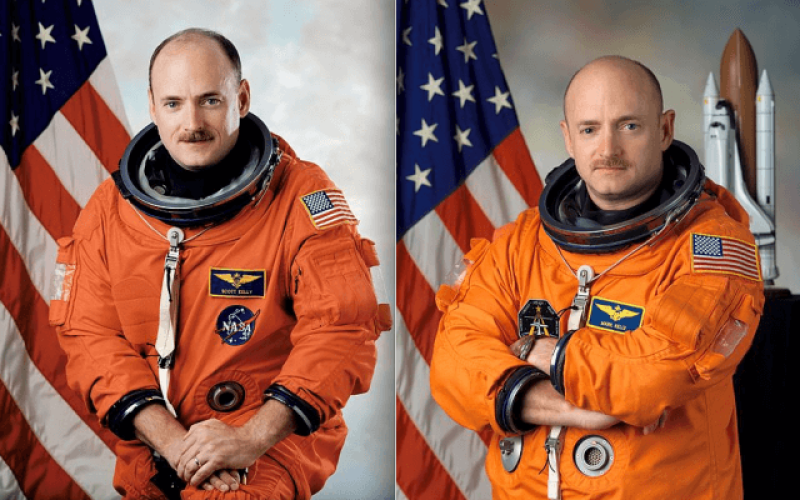In 2015, a clone will spend a year on the International Space Station while his doppelgänger stays here. Mark and Scott Kelly, NASA’s identical twins astronauts, have volunteered themselves for study, creating a unique opportunity to disentangle the health effects of space and genetics.
Researchers will have access to blood and saliva samples from both twins taken before, during and after Scott’s trip to the ISS, along with assessments of their vision, sleep patterns, bone mass and cardiovascular activity.
Such data could help determine how genetics affects the health problems seen in space, including loss of bone and muscle mass and vision issues, all caused by low gravity, plus an increased risk of cancer from cosmic radiation and sleep problems while in space.
Read the full, original story here: Astronaut twins could reveal genetics of space health
Additional Resources:
- “Interview with Scott and Mark Kelly,” NASA
The brothers were interviewed on NASA tv at the end of July, 2013. Read the transcript or watch the video at the link above.
- “Time in Space May Alter Astronauts’ Genes,” Wired
In 2012, researchers found that fruit flies that spent long periods subjected to magnetic levitation ( it generates an effect similar to microgravity) altered crucial genes. NASA’s upcoming experiment may provide results that better reflect the reality that space travelers face.































